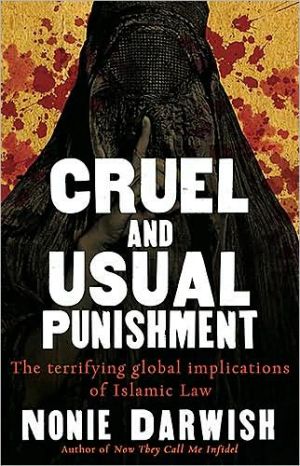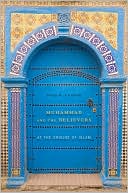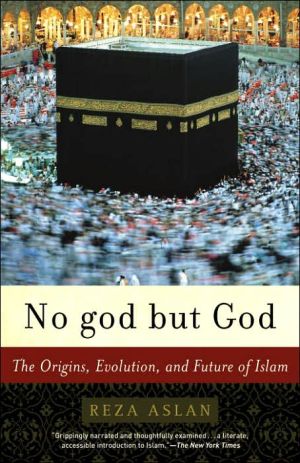The Myth of Islamic Tolerance: How Islamic Law Treats Non-Muslims
This collection of essays by some of the world’s leading authorities on Islamic social history focuses on the juridical and cultural oppression of non-Muslims in Islamic societies. The authors of these in-depth but accessible articles explode the widely diffused myth, promulgated by Muslim advocacy groups, of a largely tolerant, pluralistic Islam. In fact, the contributors lay bare the oppressive legal superstructure that has treated non-Muslims in Muslim societies as oppressed and humiliated...
Search in google:
In his collection of nearly 60 essays and primary documents, editor Spencer (who runs the Jihad Watch weblog) counters what he views as a misleading and dangerous view of Islam being presented by Western civil rights organizations and others interested in distancing ordinary Muslims from extremists such as Osama bin Laden. Spencer and his contributors assert that in fact, a culturally ingrained contempt for outsiders characterizes much of the Islamic world and is a primary catalyst for terrorism, suicide bombings, and anti-Semitism. Spencer is also the author of Onward Muslim Soldiers: How Jihad Still Threatens America and Inside Islam: A Guide for Catholics. The volume lacks an index. Annotation ©2004 Book News, Inc., Portland, OR Publishers Weekly Spencer, author of Islam Unveiled, edits this collection that sets out to debunk the theory that Muslims are tolerant of non-Muslims. Although the theme merits exploration, this book does not clarify it. The essays' authors frequently cite jihad and dhimmi as intolerant principles within Islam, but do not define them. Vague references to these ideas do not explain why Islam is inherently intolerant. Several authors also quote the Qur'an out of context and describe Muslims with large generalizations. Yasser Arafat, of the PLO, is presented as representing Muslim attitudes-a characterization most Muslims would probably disagree with. Comments describing alleged troublesome behavior by Muslims lack sources and citations. Some authors ignore basic Islamic concepts; Bat Ye'or, for example, says that the dhimmi treatment was considered "justified by the superiority of the master-race," although the Qur'an strictly states though that all races are equal in Islam. The collection includes multiple essays by the same author, including 17 by Ye'or. The resulting repetition and monotone provide little insight and a disconnected feel. This book would have been more persuasive and less alarmist if it had exclused half the essays. (Dec.) Copyright 2004 Reed Business Information.
Foreword : the genesis of a myth13Pt. 1Islamic tolerance : myth and reality271The myth of Islamic tolerance29Pt. 2Islamic law regarding non-Muslims57Introduction572Rights of non-Muslims in an Islamic state593The Jizya tax : equality and dignity under Islamic law?73Pt. 3Islamic practice regarding non-Muslims91Introduction914Protected peoples under Islam925Historical amnesia : naming Jihad and Dhimmitude1076Dhimmi peoples : oppressed nations1157Dhimmitude : Jews and Christians under Islam147Pt. 4The myth and contemporary geopolitics159Introduction1598Past is prologue : the challenge of Islamism today1619Oriental Jewry and the Dhimmi image in contemporary Arab nationalism16910Aspects of the Arab-Israeli conflict18011Euro-Arab anti-Zionism19312The oppression of Middle East Christians : a forgotten tragedy22713A Christian minority : the Copts in Egypt23214Eastern Christians torn asunder : challenges - new and old24715Christians in the Muslim world25216Persecution of Jews and Christians : testimony versus silence25717What is happening in Indonesia?26418Documentation of oppression of religious freedom in Aceh, Indonesia26719Jihad and human rights today : an active ideology incompatible with universal standards of freedom and equality27120Culture of hate : a racism that denies the history and sufferings of its victims27521The Dhimmitude of the west27822Beyond Munich : the spirit of Eurabia28323Eurabia : the road to Munich28924The Islamic conquest of Britain29425Something rotten in Denmark?300Pt. 5Human rights and human wrongs at the United Nations305Introduction30526Islamism grows stronger at the United Nations30827Universal human rights and "human rights in Islam"31728"Blasphemy" at the United Nations and Judeophobia in the Arab-Muslim world33329Dangerous censorship of a UN special rapporteur33730Judeophobia today = anti-Judaism/anti-Zionism/Antisemitism : a growing "culture of hate"35131The ideology of Jihad : antisemitism/genocide/slavery in the Sudan36032The alarming growth of Judeophobia/antisemitism since the Vienna world conference on human rights (1993) and the UN decade for human rights education : 1995-200436433"Free at last" : slaves in Sudan/disappearing Jews of Iran : their history37234The ancient Jewish community of Iran : end silence, disappearances, discrimination, "Dhimmitude"37435The remnant Dhimmi populations of the Middle East and North Africa : forgotten Jewish refugees and persecuted indigenous Christian communities38336Historical facts and figures : the forgotten Jewish refugees from Arab countries38537Discrimination in the Egyptian criminal justice system : the exemplary case of Dr. Neseem Abdel Malek - grave attacks and discrimination against Copts39238"Rushdie affair" : syndrome and historical overview - the right to life and human rights mechanisms39839Blasphemy legislation in Pakistan's penal code40740Universality of international human rights treaties41241Homage to UN High Commissioner Sergio Vieira de Mello41542International bill of human rights : universality/international standards/national practices41843Combating defamation of religions42644Apostasy, human rights, religion, and belief - new threats to the freedom of opinion and expression : a general view of apostasy42845Apostasy, human rights, religion, and belief - new threats to the freedom of opinion and expression : a concrete proposal43846Apostasy, human rights, religion, and belief - new threats to the freedom of opinion and expression : Pakistani blasphemy law44447Apostasy, human rights, religion, and belief - new threats to the freedom of opinion and expression : the problem of apostasy in an Islamic-Christian context44848Utopia : a "United States of Abraham"45349Yasir's terrorist Jesus469Pt. 6The myth in contemporary academic and public discourse473Introduction47350Edward Said and the Saidists : or Third World intellectual terrorism47451Jihad and the professors51752The Islamic disinformation lobby : American Muslim groups' politically motivated distortions of Islam52653'Isa, the Muslim Jesus54154Islam and the Dhimmis55655Answering Al-Azhar56256Islam, taboo, and dialogue : reclaiming historic truths in seeking present-day solutions56657Israel, Christianity, and Islam : the challenge of the future56858Honest intellectuals must shed their spiritual turbans587
\ Publishers WeeklySpencer, author of Islam Unveiled, edits this collection that sets out to debunk the theory that Muslims are tolerant of non-Muslims. Although the theme merits exploration, this book does not clarify it. The essays' authors frequently cite jihad and dhimmi as intolerant principles within Islam, but do not define them. Vague references to these ideas do not explain why Islam is inherently intolerant. Several authors also quote the Qur'an out of context and describe Muslims with large generalizations. Yasser Arafat, of the PLO, is presented as representing Muslim attitudes-a characterization most Muslims would probably disagree with. Comments describing alleged troublesome behavior by Muslims lack sources and citations. Some authors ignore basic Islamic concepts; Bat Ye'or, for example, says that the dhimmi treatment was considered "justified by the superiority of the master-race," although the Qur'an strictly states though that all races are equal in Islam. The collection includes multiple essays by the same author, including 17 by Ye'or. The resulting repetition and monotone provide little insight and a disconnected feel. This book would have been more persuasive and less alarmist if it had exclused half the essays. (Dec.) Copyright 2004 Reed Business Information.\ \








